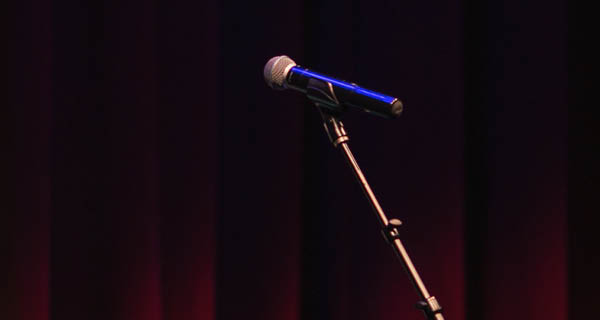
I was first introduced to the writings of Hanif Abdurraqib in January, and because each day of this year seems to confirm that we are indeed living in the darkest timeline, it feels like it has been years since the author came into my life. It was sometime when the Lighthouse team was preparing to roll out promotional Lit Fest posts for Instagram when Abdurraqib’s collection of essays was handed to me. I can recall laughing to myself at the cover which dawned a wolf that resembled a forgotten member of Run-D.M.C., and the involuntary bobbing of my head agreeing with the title; They Can’t Kill Us Until They Kill Us. As I shifted through the collection allowing for a title to catch my eye, I was unable to wander past the essay about Schoolboy Q wanting white people to say “the word.” Abdurraqib’s Schoolboy Q essay demonstrates his unique and brilliant gift of storytelling, as well as this particular vulnerability and knowledge that shows readers just how the past informs the present. In reading his essays it becomes clear that Abdurraqib has been able to turn his avid love of music into stories that have the ability to transform readers' perceptions of art and history.
Later in February, for Black History month, I memorized and presented to my peers Abdurraqib’s poem "It’s Just That I'm Not Really Into Politics." For the entire month of February I analyzed each line of this piece, reciting the poem over and over, each time revealing something I hadn't seen before. I noticed how certain consonant sounds can produce a heftier weight amongst the lines, “despite the blood / that builds a boat underneath the tongue / after speaking its name / violence begets.” By the time I had presented the piece, it felt like the poem had become a part of me. While I knew the piece was powerful, it was not until attending Abdurraqib’s craft seminar at Lit Fest that I was able to articulate why this poem is so effective. In his seminar On Sound: What Poets Can Learn from Music, Abdurraqib discussed challenging the adage that “voice is the instrument”, replacing it with “language is the instrument.” He went on to explain how writers should approach the page as if they are creating a sheet of music, using space as beat and punctuation as percussion. This is when I realized that "It’s Just That I'm Not Really Into Politics" was so impactful because he is particularly aware of how powerful sound, language, and repetition are in conveying our stories and messages. As writers it is our job to create a symphony out of story.
I love Abdurraqib’s writing because of the ways in which he chooses to write about Black art and the Black experience. His informed yet intimate writing ignites a discourse that is often overlooked or ignored entirely. For so long Black Americans were only allowed singular narratives that continuously failed to show the complex and multifaceted lives we live. Abdurraqib’s writing pushes readers to examine how the past has informed the present, which often results in this stunning and honest depiction of what it looks and feels like to be Black in America. While teaching this course he chose to highlight the work of other contemporary Black writers like Tiana Clark and M. NourbeSe Philip which I think really speaks to his pursuit of telling Black stories. I would like to thank him for being an unapologetic writer who not only talks about Black art but celebrates it by bringing its history and contemporaneity into the classroom and onto the page. As a novice Black poet it's exciting to be taught by artists like Hanif Abdurraqib.
Below is a poem that I wrote based on the advice and teachings of Abdurraqib, entitled "Have You Seen This Girl?"
Have you seen this girl?
Have you seen this girl?
Skipping into summer
Like she hadn’t swallowed oceans in the fall
Have you seen this girl?
Sewing sun dried prayers into her baby's hair
Have you seen this girl?
Her body housing hundreds of hushed dreams
Have you seen this girl?
Somebody should have asked if she liked the taste of the sea
Have you seen this girl?
Standing at the edge of the earth screaming to be
Have you seen this girl?
Silent siren singing out
Happy birthday to
She should have her birthday too
Have you seen this girl?
Have you seen this girl?
Have you seen this girl?
Last seen holding pieces of the sky
Ali Stratton is currently a senior at the university of Colorado, Boulder pursuing a B.A. in English with an emphasis in creative writing and minoring in Political Science. When she is not studying, writing, or thinking about the revolution you can find her listening to the latest female rap album or writing poems about dogs she has never met.

